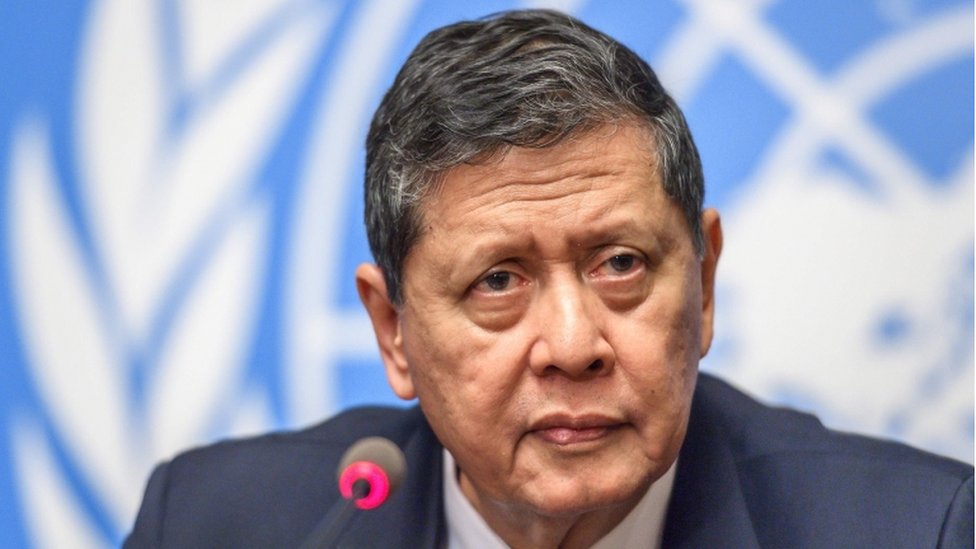Marzuki Darusman writes in the Jakarta Post that ASEAN must end its deadly complacency on Myanmar and channel life-saving humanitarian aid to its people or face irrelevancy
Marzuki Darusman is a founding Member of the Special Advisory Council for Myanmar and former chair of the UN Independent International Fact-Finding Mission on Myanmar.
July 31, 2021
Three months have passed since ASEAN agreed to a five-point consensus plan on how to respond to the crisis in Myanmar. During this time, the situation in Myanmar has drastically deteriorated. Yet, the five-point plan remains little more than a piece of paper, with few signs to date of any steps toward implementation.
Meanwhile, the bodies are still, quite literally, piling up on the streets of Myanmar. Earlier this year, police and soldiers massacred hundreds who joined peaceful protests against the military coup. These days, it is the junta’s deadly weaponizing of a third wave of the coronavirus that is filling up morgues and causing untold destruction.
The pandemic is wreaking havoc across the country. Acute oxygen shortages and a collapsed healthcare system mean that very few people are getting the treatment they need. The five-point consensus included an agreement that ASEAN would provide humanitarian assistance to Myanmar. That has still not materialized, even as the need for life-saving aid has become ever-more desperate.
Next week, Brunei will host the 54th ASEAN Foreign Minister’s Meeting. It is expected that the long-overdue appointment of the ASEAN special envoy to Myanmar – also agreed to as part of the five-point consensus – will be announced.
But the announcement of the special envoy, meant to lead regional efforts to end the crisis, will be irrelevant if there is still no clear idea of what ASEAN will do next.
What should happen next? The Special Advisory Council for Myanmar, of which I am a founding member, has outlined a way forward. Supply lines must be opened across Myanmar’s borders to allow life-saving assistance into the country. ASEAN plays a key political role in this, with ASEAN member states neighboring Myanmar.
ASEAN must engage with local health and other service providers already on the ground. The National Unity Government has established a joint COVID-19 task force with Ethnic Health Organizations. It is led by highly respected humanitarian leaders who have decades of experience getting emergency services to people fleeing from the Myanmar military. They know how to deliver assistance safely and securely, and ASEAN must support them.
There is no more time to waste. With every day that passes ASEAN’s complacency moves closer to complicity in the junta’s brutal assault on the people of Myanmar.
The leader of the junta, Gen. Min Aung Hlaing, stated last week that he is seeking the release of COVID funds from ASEAN, making a mockery of regional efforts to combat the virus. After launching his coup in February, he abandoned Myanmar’s testing and vaccination program and decimated the country’s healthcare system, his soldiers are using hospitals as military bases and targeting medical professionals, forcing thousands into hiding.
In recent weeks his forces have opened fire on crowds of people anxiously waiting to refill oxygen cylinders, and then seized what scarce supplies of oxygen there are left. They have looted and destroyed medical supplies, including personal protective equipment, and continued to abduct doctors and nurses who are working undercover to treat patients, all the while in fear for their own lives.
ASEAN member states would be fools to give COVID-19 relief money to the junta. As I stated in 2018 as chair of a UN fact-finding mission on Myanmar, Min Aung Hlaing should be investigated and prosecuted for genocide, crimes against humanity and war crimes.
The only way for humanitarian assistance to reach the Myanmar people is for it to be delivered directly to them. In 1948 the Berlin Airlift overcame a Soviet blockade to see food, water and medicine reach the people of besieged West Berlin. There are no excuses.
It is unacceptable for ASEAN to wait for the junta’s consent to begin implementing any part of the five-point consensus. If the special envoy cannot be appointed, the ASEAN chair and secretary-general must take the lead. At next week’s ministerial meeting, ASEAN must finally start acting in the interest of the principles enshrined in the ASEAN Charter; respect for fundamental freedoms, promotion and protection of human rights and the promotion of social justice, as well as peace, security and stability in the region.
People in Myanmar are struggling to breathe. But in the struggle for relevancy, this could be ASEAN’s last gasp.


